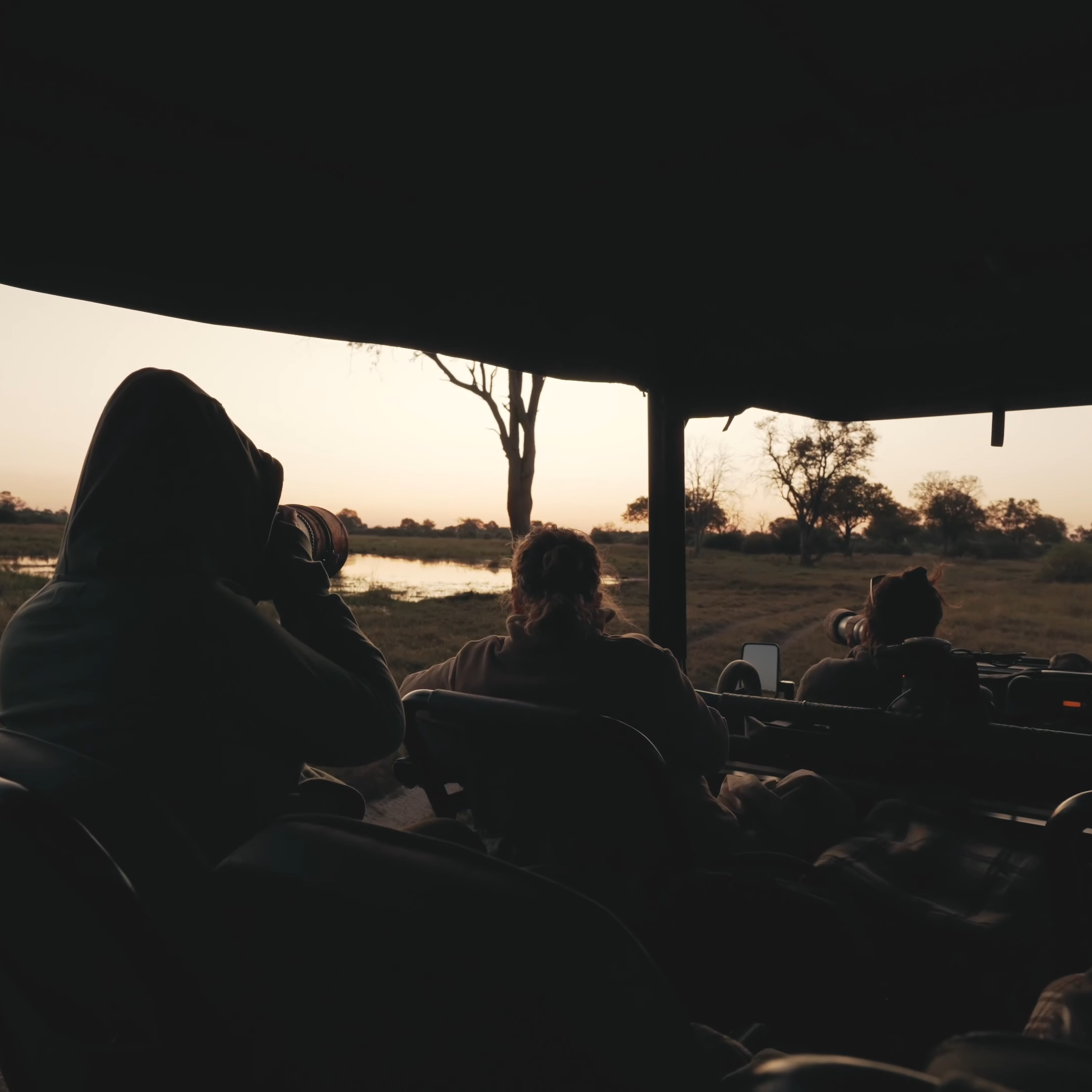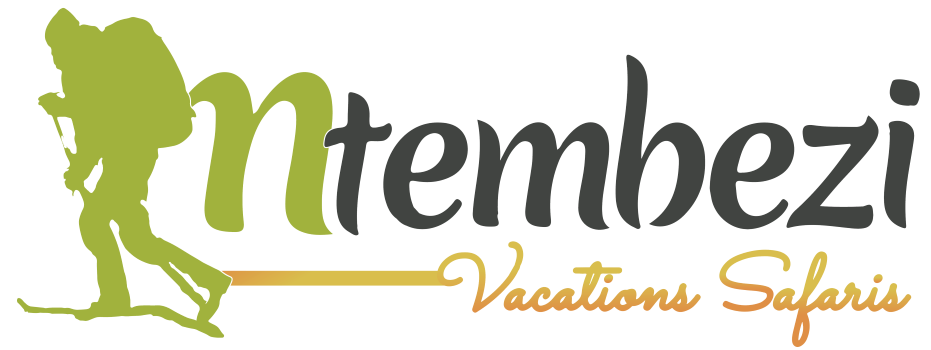Perfect Guide to LGBT Travel Rights in Botswana Tour Packages
Ultimate Guide to LGBT Travel Rights in Botswana: Inclusive and Welcoming Adventures
Botswana is home to the stunning Okavango Delta, one of the Seven Natural Wonders of the World and a UNESCO World Heritage site. This vibrant wetland attracts wildlife, including predators and prey, as the delta floods in winter, offering unique viewing opportunities. Botswana’s Chobe National Park, known as the “Land of the Gentle Giants”, is renowned for its massive elephant herds that traverse the plains, offering an unforgettable experience. Meanwhile, the Kalahari Desert provides a tranquil escape with endless horizons and star-filled skies, perfect for those seeking isolation in nature.
Why Botswana is Perfect for LGBT Travelers
Botswana’s open and welcoming atmosphere makes it an ideal destination for LGBT travel in Africa. The country is sparsely populated, ensuring that travelers can enjoy ultimate privacy and peace while experiencing an array of wildlife and landscapes. Botswana offers the luxury of isolation, allowing LGBTQ+ couples to focus on each other without distractions, noise, or pollution. Botswana’s same-sex travel options are growing, with safari lodges, camps, and luxury accommodations that cater to all, creating a safe and private environment for LGBT travelers.
Best Time to Visit Botswana
- Peak Season: July to October
- Ideal Time for Travel: Year-round
- Price Range per Day: $500 – $3,500
- Famous For: Elephants and wildlife safaris
- Home to: Natural wonders and wildlife experiences
LGBT-Friendly and Safe
Botswana made significant strides in LGBT rights, decriminalizing homosexuality in 2019, making it one of the most progressive countries in Africa for LGBT individuals. While same-sex relationships are now legally accepted, Botswana’s tourist destinations have always been welcoming to gay travelers, ensuring a comfortable and inclusive experience.
Is Botswana Safe for Gay Couples?
Yes, Botswana is a safe and gay-friendly destination for same-sex couples. The country offers seclusion and privacy, allowing LGBT couples to enjoy their time together away from the crowds. Botswana’s legal progress on LGBT rights, especially since the legalization of homosexuality, ensures that LGBT travelers are respected in both tourist and local areas.
Gay-Friendly Destinations to Pair with Botswana
For those looking to extend their LGBT-inclusive adventure, consider pairing Botswana with nearby gay-friendly destinations like South Africa. Start in Cape Town, often referred to as Africa’s gay capital, where you can enjoy plenty of LGBT accommodations and activities. From there, you can fly to Kruger National Park for a luxury Big 5 safari or add a visit to Victoria Falls for an unforgettable experience. For some relaxation after your safari, consider ending your journey in Mauritius, Seychelles, or Mozambique, where you can enjoy stunning beaches and inclusive hospitality.
Top Gay-Friendly Experiences in Botswana
Botswana offers a variety of LGBT-friendly experiences, whether you’re on a traditional game drive, a peaceful mokoro boat ride, or a walking tour through its wild landscapes. Botswana’s recent legal changes have only improved the country’s acceptance of LGBT couples and their freedom to express affection in public spaces, offering a unique and safe environment for LGBT travelers to enjoy their adventure.
Gay-Friendly Accommodation in Botswana
From luxury safari lodges to private tent camps, Botswana offers a wide range of LGBT-friendly accommodations. These exclusive places provide all the comfort and romance you need, whether you prefer a luxury tent under the stars or a solid, secure lodge with all the amenities you require.
Is Botswana Gay-Friendly?
Botswana has become one of the most progressive African countries regarding LGBT travel rights, with recent legal changes supporting same-sex travel. Though rural areas may still be more conservative, urban centers like Gaborone are welcoming to the LGBTQ+ community. In fact, Botswana is increasingly recognized for its gay-friendly Botswana safaris and LGBT-inclusive Botswana travel experiences, offering a range of activities for LGBTQ+ Botswana tourists.
Botswana’s tourism industry, particularly in its safari lodges and remote camps, is renowned for its professionalism and inclusivity. Many establishments provide gay-friendly Botswana safaris and cater to diverse guests, offering rooms and packages that respect and celebrate individuality.
Legal and Social Landscape for LGBT Travel Rights in Botswana
Botswana’s legal framework for LGBT rights has evolved significantly, particularly after the 2019 ruling that decriminalized homosexuality. With this progress, LGBT Botswana tourism has grown, creating more opportunities for lesbian-friendly Botswana safari tours and welcoming LGBT couples. It’s important, however, to remain informed about local customs, especially in more traditional areas, where discretion in public spaces is still advised.
Since becoming a signatory to the ICCPR in 2000, which bans discrimination based on sexual orientation, Botswana has made significant strides in LGBT travel rights. The Employment Act was amended in 2012 to prevent job termination based on sexual orientation or HIV status. In a landmark move, LEGABIBO, Botswana’s first gay rights organization, was granted legal status in 2014. The High Court has continued to support LGBT rights, notably decriminalizing homosexuality in 2019, positioning Botswana as one of the few African nations to offer protections for LGBT individuals.
Key Statistics for LGBT Travelers
- The country saw a rise in LGBT tourism following the 2019 decriminalization, with more operators offering Botswana LGBT safari packages.
- Botswana LGBT tourism is growing, with an increasing number of gay-friendly Botswana accommodations and LGBT-inclusive Botswana activities being offered.
- The tourism sector in Botswana is welcoming to same-sex couples and solo LGBT travelers alike, with high standards of professionalism and discretion.
LGBT-Friendly Attractions and Activities
- Okavango Delta: For a truly LGBT-inclusive Botswana safari, the Okavango Delta offers a range of private, intimate safari experiences, perfect for same-sex couples looking to explore Botswana’s beauty in a welcoming environment.
- Chobe National Park: Known for its diverse wildlife, Chobe offers options for LGBT-friendly activities in Botswana, such as private boat tours and luxurious wildlife viewing, perfect for LGBT Botswana tourists seeking a unique adventure.
- Gaborone: As Botswana’s capital, Gaborone is home to vibrant LGBT-friendly spaces and activities, offering everything from nightlife to cultural experiences that cater to the LGBTQ+ community.
Practical Travel Tips
- Book LGBT-Friendly Operators: To ensure a smooth trip, book your Botswana same-sex travel packages through operators that specialize in inclusive Botswana travel.
- Discretion in Rural Areas: While Botswana is open and increasingly progressive, it’s important to be discreet about your sexual orientation, especially in rural areas where traditional views may still prevail.
- Accommodation: When looking for LGBT-inclusive Botswana accommodations, choose lodges and camps that are known for their welcoming atmosphere and inclusive policies. Some of the best LGBT-friendly lodges in Botswana cater specifically to same-sex couples and solo LGBT travelers.
- Solo Travel: Botswana is a safe and friendly destination for solo LGBT travel. The country’s tourism industry is well-equipped to provide solo LGBT travel rights services, ensuring a memorable and secure experience.
- LGBT Honeymoon: Botswana is an increasingly popular destination for LGBTQ+ honeymoons, offering private, luxury safari experiences for same-sex couples who seek an unforgettable, romantic getaway in the wilds of Africa.
Your Botswana Adventure Awaits
Botswana offers a wealth of options for LGBT travelers seeking adventure, romance, and relaxation in a welcoming and inclusive destination. From exploring the Okavango Delta on a Botswana LGBT safari to enjoying the vibrant life in Gaborone, there’s something for every traveler in this beautiful country. Whether you’re looking for a Botswana honeymoon for same-sex couples, a solo trip, or a luxury adventure, Botswana’s LGBT-friendly tourism ensures that everyone can experience this amazing destination to the fullest.
What You Need to Know About Botswana LGBT-Friendly (FAQs)
1. Is Botswana LGBT-friendly?
Yes, Botswana is one of the most gay-friendly destinations in Africa, especially after decriminalizing homosexuality in 2019. The tourism industry is welcoming and offers a safe environment for LGBT travelers.
2. How do rural and urban attitudes towards LGBT individuals differ in Botswana?
Urban areas, like Gaborone, are generally more liberal, with some openly gay individuals. However, rural regions remain conservative, and discretion in public behaviour is advised to respect cultural norms.
3. Are there gay-friendly accommodations in Botswana?
Absolutely! Botswana features many inclusive lodges, luxury camps, and private tent accommodations, ensuring comfort and privacy for LGBT couples.
4. Is Botswana safe for gay couples?
Yes, Botswana provides a secure and private environment for LGBT travelers. Recent legal reforms and professional tourism services ensure a welcoming experience.
5. When is the best time to visit Botswana?
The peak season is from July to October, perfect for wildlife viewing. However, Botswana’s natural wonders can be enjoyed year-round.
6. What should LGBT travelers pair with a Botswana trip?
Combine Botswana with Cape Town, Africa’s gay-friendly capital. Extend your journey to Victoria Falls or unwind on the beaches of Seychelles, Mauritius, or Mozambique.
7. How does the tourism industry handle LGBT travelers?
Botswana’s hospitality sector is inclusive, with accommodations tailored to guests’ preferences, such as double or single beds, and professional service that respects privacy.
8. What cultural norms should LGBT travelers be aware of?
While same-sex friends holding hands is common and non-romantic, overt displays of affection are discouraged, especially in rural areas, to avoid offending.
9. Where can LGBT travelers find more resources about Botswana?
- LEGABIBO: Botswana’s first LGBT organization.
- FCO LGBT Travel Advice: Guidance for global LGBT travelers.
- ILGA Maps: Detailed insights into LGBT laws worldwide.
10. What makes Botswana a top destination for LGBT travelers?
Botswana offers unmatched privacy, thriving wildlife, and breathtaking landscapes. Its inclusive tourism industry ensures a memorable and comfortable experience for all visitors.


